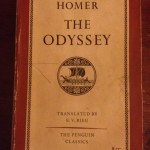My husband, daughter, and I were sitting at the breakfast table. I was folding James’ underwear when he burst out laughing.
“What’s so funny?” I asked, and he read aloud a story about football teams competing in a “beef bowl,” eating up to eight pounds each at a sitting.
“That’s disgusting,” Ella and I agreed.
“Come on,” he said. “It’s funny, too.”
“The only thing a man proves by gorging on meat is how insecure he is about his masculinity,” I said.
“It’s selfish,” Ella said. “They should leave some meat for everybody else. It’s like people who want to kill wolves because the hunters want all the elk meat to themselves.” She’d been following the New York Times stories about the wolf debate in the West. I wasn’t sure I saw the connection, but I gave her credit for trying.
“Men,” Ella and I said to each other with our eyes.
I hate “battle of the sexes” conversations, and I didn’t mean to engage in one. My husband is the most accommodating man I know. I have no complaints.
“The beef bowl is pretty funny,” I admitted. “As funny as me sitting here folding your underwear.”
“You don’t have to do that,” he said.
“I know,” I said. “It’s a gesture of love.” And then I started to silently laugh. At myself.
How many other ways did I use my time carelessly, as a mother, wife, writer, editor, and friend? It’s the time for New Year’s resolutions. I resolve to be more selfish. More driven. More focused. I resolve to work more like a man.
I realize that last line is provocative, that I am perpetuating nothing more than a stereotype. That’s because I don’t need to be more like a real man, but more like a stereotypical one.
I vow to put my work first, to make finishing my book this year my first priority. In the past two months, I agreed to write four interviews and five book reviews. I’ll follow-through with my promises, but I won’t agree to take on any projects in the interests of being a good “literary citizen” until my own work is done. I’ll try to make 2014 the year in which I don’t do the metaphorical equivalent of folding my husband’s underwear, in my career.
We’ll see what happens. If I’m seized with uncontrollable cravings for a plate of meat as heavy as a newborn baby, I’ll let you know. It could be funny.




